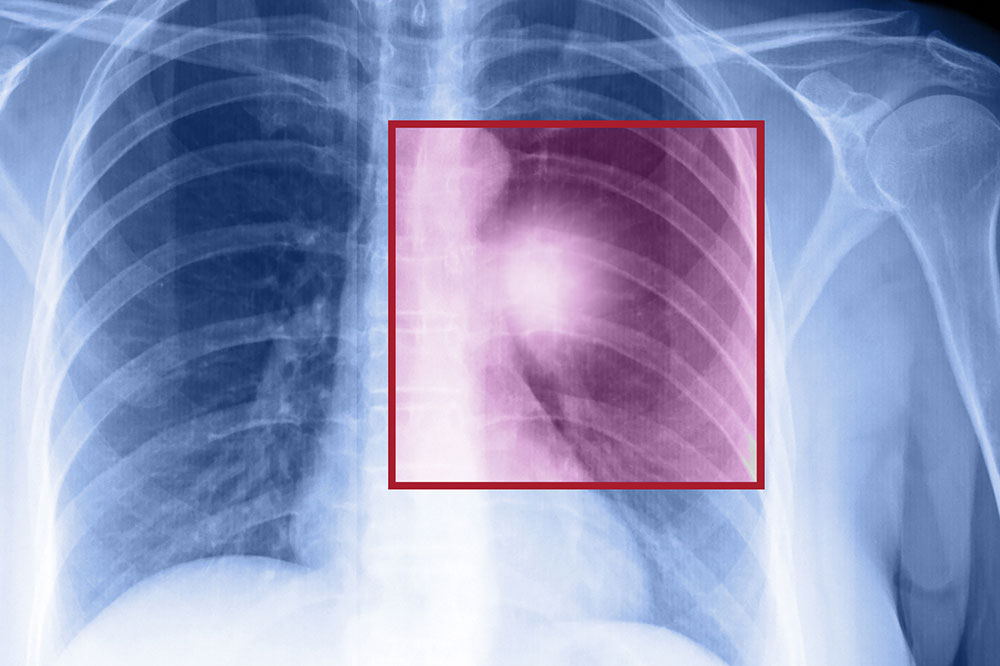Early Warning Signs and Symptoms of Lung Cancer You Need to Recognize
Early detection of lung cancer can significantly improve treatment outcomes. This comprehensive guide covers key early symptoms such as persistent coughs, breathing difficulties, chest pain, wheezing, voice changes, and unexplained weight loss. Recognizing these signs promptly and seeking medical advice is crucial for timely diagnosis and effective intervention, increasing survival rates. Stay informed about the early indicators of lung cancer to promote awareness and encourage early screening, especially for high-risk populations.

Detecting lung cancer at an early stage is vital for effective treatment and improving patient survival rates. Unfortunately, the initial symptoms of lung cancer are often subtle, vague, or even absent, leading many cases to be diagnosed at more advanced stages when treatment options become limited. Recognizing early warning signs can prompt timely medical consultations and early interventions, significantly enhancing the chances of successful treatment. This comprehensive guide highlights over 1500 words describing the most common early indicators of lung cancer, helping individuals and healthcare professionals identify potential issues sooner.
Understanding these signs is crucial because early detection can make a substantial difference in patient outcomes. While some symptoms might resemble those of less severe illnesses, persistent or unusual symptoms should never be ignored. Being vigilant about these indicators and consulting healthcare providers promptly can lead to earlier diagnosis, better treatment options, and improved prognosis.
Persistent Coughing and Changes in Cough Pattern
A lingering cough is one of the most common early symptoms of lung cancer. Unlike coughs caused by common colds, allergies, or infections, a cough that persists for more than a few weeks warrants concern. If a cough is worsening or not responding to typical treatments, it could signal abnormal growths or tumors in the lungs.
More specifically, smokers or individuals with a history of lung issues should be watchful for alterations in their usual cough patterns. Increased frequency, hoarseness, or the coughing up of blood (hemoptysis) are significant warning signs. Blood in sputum indicates bleeding caused by tumor erosion into blood vessels and should prompt immediate medical attention.
It is essential to seek medical advice if you notice persistent coughing, voice changes, or blood in your sputum. Early diagnosis can help intervene before the disease progresses to more advanced stages, potentially saving lives.
Respiratory Difficulties and Chest Discomfort
Breathing problems are alarming symptoms associated with lung cancer. Labored breathing, shortness of breath, or wheezing occurs as tumors obstruct airways or fluid accumulates around the lungs. Patients may experience a tight sensation in the chest or feel exhausted even after minimal exertion.
Persistent chest discomfort, whether dull, sharp, or intermittent, can also be an indication of underlying lung issues. Tumors growing in the lung tissue may cause pain that radiates to the shoulders or back, mimicking other conditions like musculoskeletal problems but requiring careful evaluation for lung cancer.
Any new or worsening respiratory difficulty should be evaluated by a healthcare professional promptly to rule out lung malignancies or other serious conditions.
Wheezing and Voice Changes
Wheezing, characterized by a whistling sound during breathing, suggests airway constriction or inflammation. While it can result from asthma or infections, persistent wheezing without an obvious cause warrants further investigation. It might indicate tumor growth narrowing the airways, which interferes with normal airflow.
Similarly, voice changes such as hoarseness or raspiness can be early signs of lung cancer affecting nerves or vocal cords. These symptoms should be evaluated thoroughly, especially if they persist beyond typical cold or allergy symptoms. Detecting such symptoms early allows for more effective management and potentially better treatment outcomes.
Unexplained Weight Loss and Systemic Symptoms
Sudden, unexplained weight loss of 10 pounds or more over a short period can be a warning sign of various cancers, including lung cancer. Weight loss occurs as the disease impacts metabolism and energy levels. Often, this symptom appears alongside other systemic signs such as fatigue or loss of appetite.
Additional systemic symptoms like persistent fatigue, weakness, or recurrent infections may indicate an underlying malignancy affecting the body's immune response. These signs should prompt comprehensive medical evaluation to identify possible lung tumors or other serious conditions.
The Importance of Awareness and Early Diagnosis
Awareness of early symptoms is crucial because it encourages individuals to seek medical attention sooner, leading to earlier diagnosis. Early detection not only improves treatment efficacy but also enhances quality of life and survival rates. While these symptoms may be caused by benign conditions, persistent or unusual features should prompt medical assessment.
Screening programs, especially for high-risk groups such as smokers or those with occupational exposures, are vital in catching lung cancer early. Routine imaging tests like low-dose CT scans are recommended for certain high-risk populations to detect abnormalities before symptoms develop.
Conclusion
In summary, being vigilant about persistent coughs, changes in cough patterns, breathing difficulties, chest pain, wheezing, voice alterations, and unexplained weight loss can significantly impact early lung cancer detection. Recognizing these signs and seeking prompt medical evaluation can lead to earlier diagnosis, more effective treatment options, and improved patient outcomes. Do not ignore any persistent or unusual symptoms—early intervention is key to fighting lung cancer effectively.





